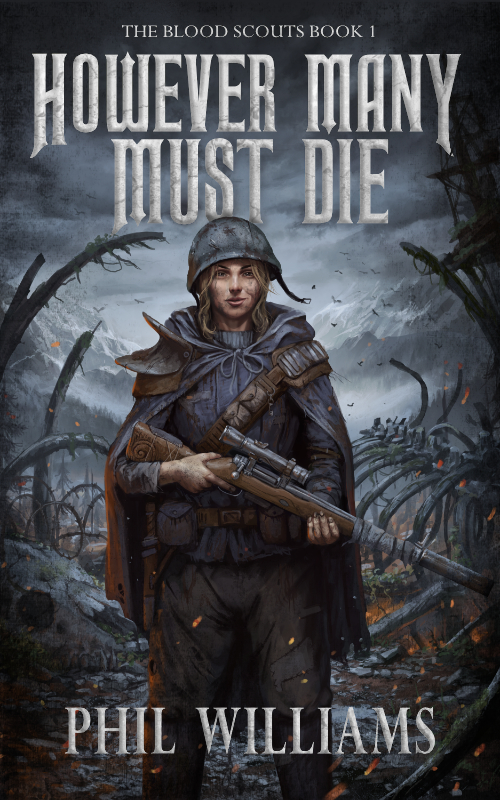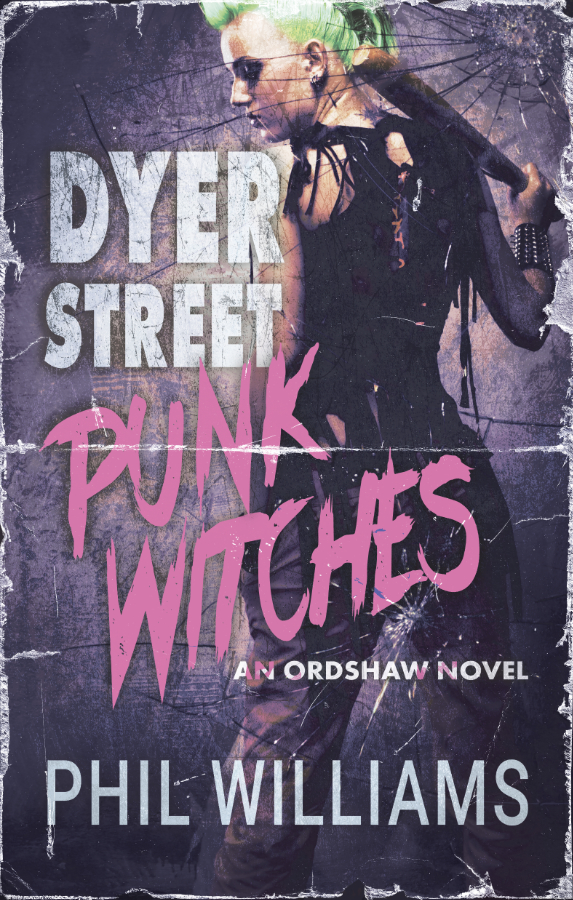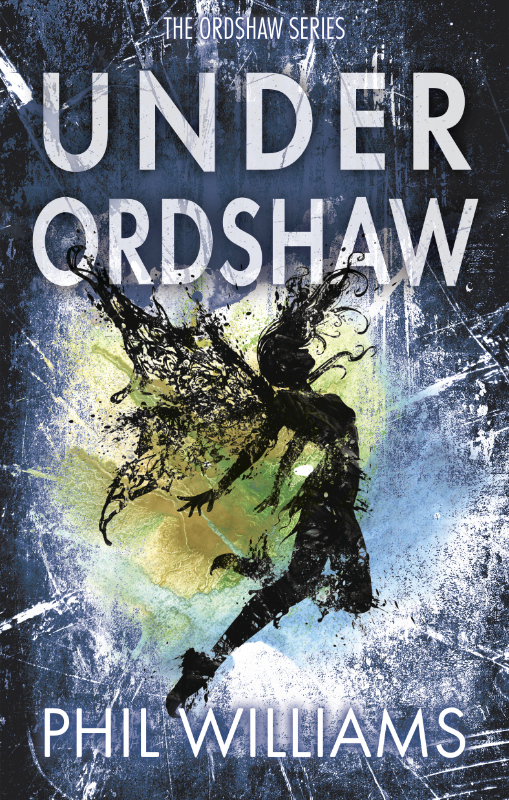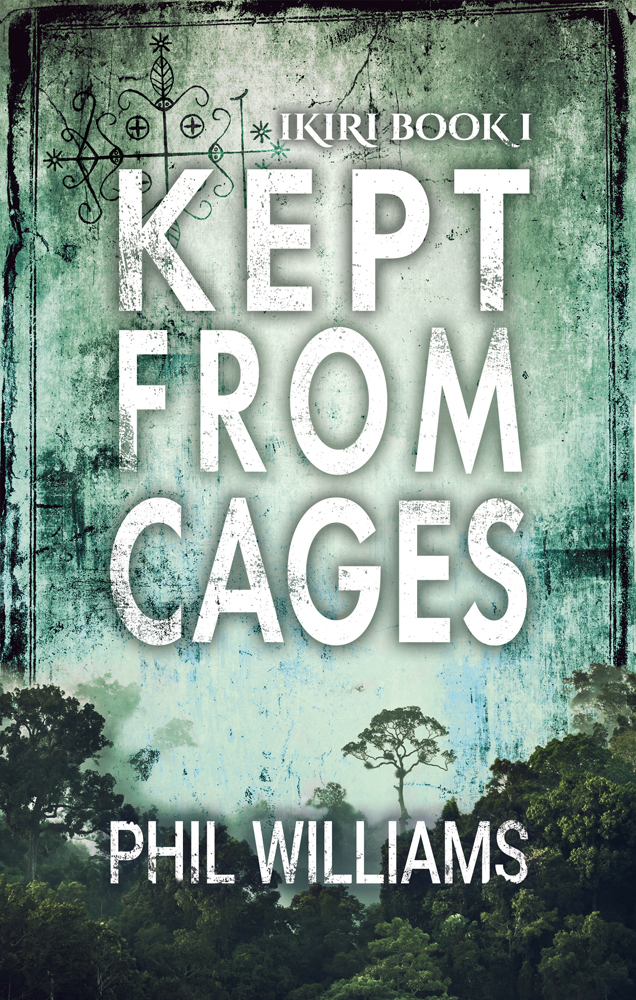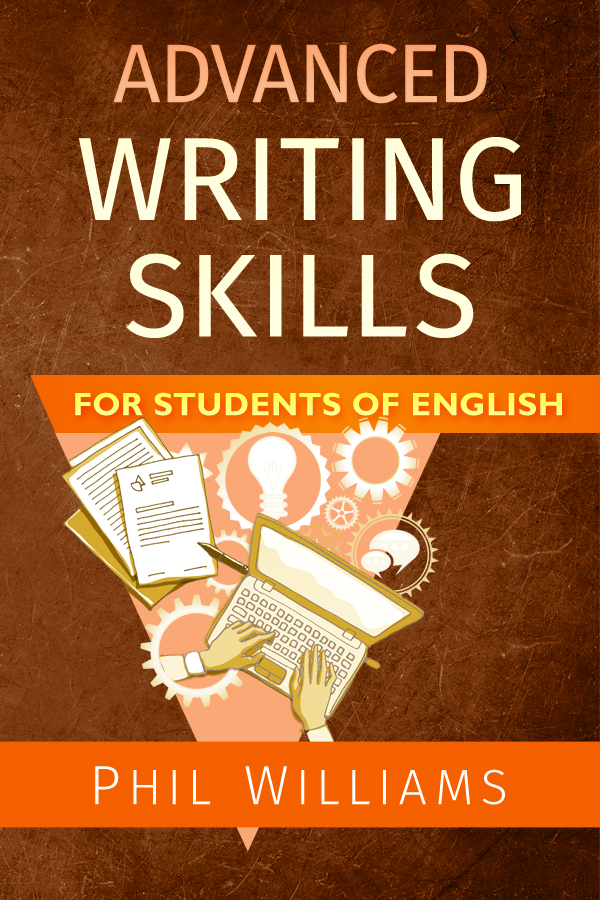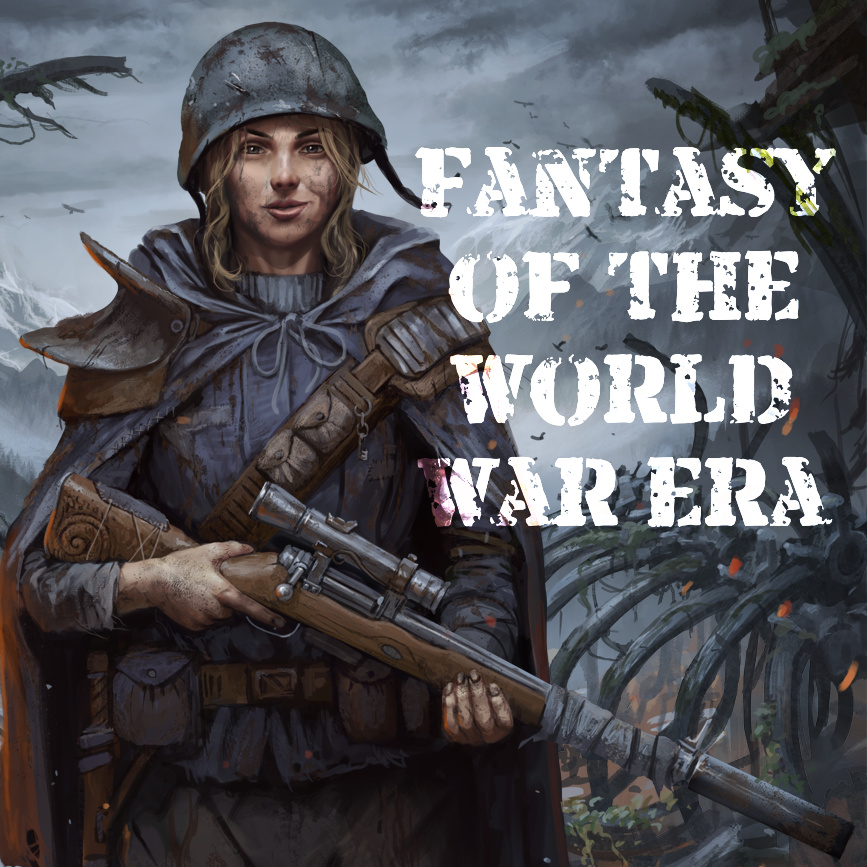
Since I started writing However Many Must Die, I’ve taken quite an interest in World War 1-era fantasy, though hunting it out, and seeing other people asking about it, often seems to produce scant results. With that in mind I thought it might be interesting to share some of my thoughts and findings on the subject in general.
Great War-esque fantasy is a pretty rare thing – that simple thought was a main driver for me writing my own. Why not, thought I, have a Lord of the Rings style traditional epic fantasy quest, in a creative secondary world, but with early-20th century tech – against the background of messy imperial conflict? I’m admittedly not the widest-read fantasy reader, but I’m not aware of there being anything quite similar (I’m happy to take suggestions though!).
Where fantasy and the world wars intersect…
The reason I find the period so fascinating, and it so unusual that we don’t see more of it in SFF, is that World War 1 saw a rapidly advancing world’s first truly global conflict. It’s when technology took a step-change to be applied on much more horrific scales, as empires became too big to share the world. The dispute dragged everyone, everywhere into the fight in a deeply messy way, raising questions about national identity, the ‘glory’ of war and the structure of society overall. By the end of it, a lot of lines had been muddied.
Yet stories that most closely reflect our own world wars, taking the politics and stage of technology into account, are often more the domain of historical fantasy, or sci-fi, and skew towards World War 2-era. A solid example, with a great mix of ideas, is the Milkweed Tryptich (by Ian Tregillis, starting with Bitter Seeds), with other popular ones I’m aware of but haven’t yet read including World War by Harry Turtledove (WW2, with aliens) and the Leviathan series by Scott Westerfield (WW1, alt history dieselpunk). All these are alternative history rather than secondary world. Otherwise, the closest thing I’m aware of that captures this feel is the vast field of Warhammer 40k, where the Imperial forces have clear WW1 influences – but that takes things intergalactic.
Otherwise, we have historical fantasy that falls notably earlier: the Powder Mage books are secondary world with gunpowder, but of an earlier era, and while there are some steps towards modern imperial warfare seen in Jonathan Strange & Mr Norrell, though with more minimal elements of fantasy. I’m not yet caught up on Joe Abercrombie’s latest books but I believe he inches towards gunpowder too. None of these quite capture the scale and rapid advances that defined Great War technology.
Instead, the closest fiction we have to this era tends to be in dieselpunk or streampunk novels, often dwelling more in urban settings concerning mysteries and conspiracies rather than epic wars, and again leaning towards sci-fi over fantasy – machinery over magic. And again military fiction overall, in SFF and elsewhere, still leans more heavily towards World War 2, with more fully established technology and rather plain battle lines – one of the reasons, I expect, being that Nazis making a much simpler enemy than empires that are as good or bad as each other.
Why isn’t there more Great War-era fantasy?
WW1, for me, represents the ugliest and most complicated time to wade into a war, as the period where a lot of harsh realities were ready to become universally understood. It’s a ripe ground for exploring class and racial divides and the confluence of world-altering technology, bringing in all sorts of challenges of its own – after all, where better to explore the intersection between technology and magic than at a time when weapons suddenly became terrifyingly advanced?
There are a few reasons I think we don’t see more writing in this area, that complicated nature being one of them. I also suspect that where fantasy writers and readers may look for total escapism, the more distant past is more desirable as more fantastical – from the settings and mannerisms through to how fights play out. Medieval conflict gets up close and personal while gunplay and global conflict takes out some of the mystique (monsters and divergent races lose a bit of effect when they can all be killed by a bullet, after all). On the flipside, those after a more modern allegory may want it more advanced and more familiar, as we got with the Second World War. Though again, that simplification of Nazis = bad, so killing them = good, is doubtless a big impetus too, as it’s tailor-made for avoiding difficult questions about the nature of war itself (and war as entertainment). World War One was that much dirtier in a lot of ways, its weapons and battle lines scrappier.
But imperial war on the cusp of 20th-century technology is a prime area to explore some of the most dramatic social constructs and shifting perceptions: the value of life, and land, the importance of national identity, the fallacies of glory and fairness across societies supposedly fighting for the same thing.
My fantasy-style quest, However Many Must Dies, in its secondary world inspired by the Great War, barely touches on a lot of these themes, but it’s all there somewhere as fuel for the fire. I found some ideas came out much more naturally in the writing of the sequel, rather ironically considering the second book takes a less epic approach. I’m aiming to expand on these ideas with other stories that delve into more divergent areas of the conflict myself, but I’d be interested to see others’ takes on these questions. It seems to me an area of history more relevant now than ever – the Great War, after all, was the first time the world really woke up to just how disastrous it was to combine factional pride with sudden shifts in technology. A message that got rather lost over the following century.

